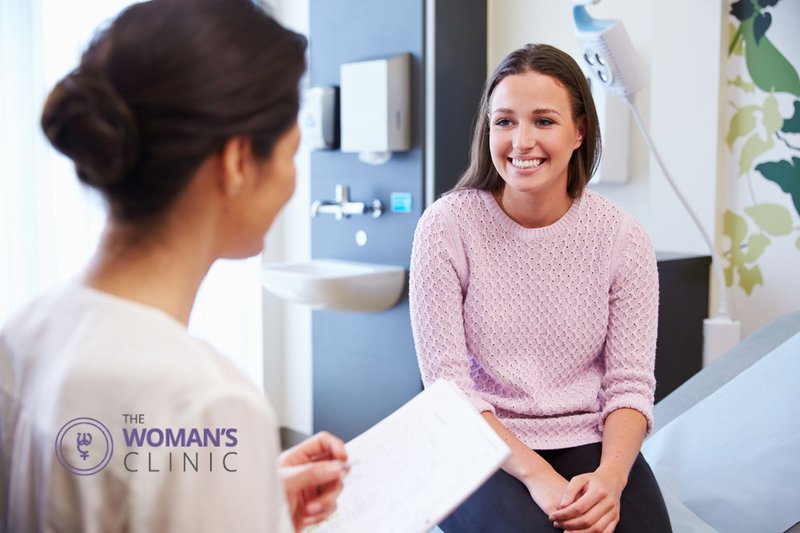Worried a Pap smear might hurt? You're not alone—the answer matters. Many women avoid this important test due to fear of pain or embarrassment. But knowing what to expect can ease your mind and help you feel more at ease. We’re here to explain how it feels, what happens, and how to make it more comfortable for your body and peace of mind.
Key Takeaways:
- Pap smears begin at age 21 and are recommended every 3 years (or every 5 with HPV co-testing from age 30–65).
- The procedure takes less than 5 minutes and typically causes mild pressure or cramps, not pain.
- A speculum is inserted to view the cervix; discomfort may be reduced with smaller tools and lubrication.
- Virgins and sexually inactive individuals still need Pap smears, but may feel tighter sensations—providers can adjust technique.
- Mild cramping or spotting afterward is common and usually fades within hours; heavy bleeding or pain should be checked by a doctor.
- Anxiety, tense muscles, or conditions like vaginismus and endometriosis can increase discomfort.
- Open communication with your provider can help accommodate past trauma or fears.
- Skipping Pap smears can delay the detection of cervical cancer, even without symptoms.
Does a Pap Smear Hurt? Understanding the Procedure, Comfort Tips, and What to Expect
When it comes to reproductive care, many patients ask the same important question: Does a Pap smear hurt? This concern is completely valid, especially if it’s your first time or if you’ve had uncomfortable exams in the past. Fortunately, there are many ways to reduce both anxiety and discomfort during this essential screening. With gentle care, open communication, and the right preparation, this brief and potentially life-saving test can be a lot more manageable than expected.
Pap Smear Exams Are Quick, Gentle, and Essential for Cervical Health
Although the idea of a Pap smear may seem intimidating, the test itself is typically quick and straightforward. During the exam, a medical professional gently inserts a speculum into the vagina to view the cervix. Then, a soft brush or small spatula collects cells from the cervical surface. While this process may sound uncomfortable, most patients describe it as more awkward than painful. In fact, for many, the answer to “does a Pap smear hurt” is a reassuring no.
Of course, some sensations—such as light pressure, mild cramping, or a scratch-like feeling—are normal. These are usually brief and subsided quickly. If you feel any sharp or lingering pain, you should always speak up. Providers at The Woman’s Clinic in Little Rock are trained to adjust tools, pacing, and technique based on your individual needs.
What Happens During a Typical Pap Smear Visit?
When you arrive for your appointment, a staff member may ask if it’s your first time. If so, they’ll explain each step and answer any questions you may have. You’ll be given privacy to undress from the waist down and provided with a gown or paper drape. Once you lie back on the exam table and place your feet in stirrups, the exam will begin.
First, your provider performs a visual inspection of the vulva and vaginal opening. Next, they insert a speculum to gently open the vaginal walls and view the cervix. This tool may feel cold or create a stretching sensation, but it shouldn’t be painful. If it is, simply ask for more lubricant or a smaller-size speculum.
After the speculum is in place, a brush quickly collects cervical cells. You may feel a brief cramp or slight pressure—similar to the start of a period. The collection takes less than a minute, and the full exam is typically completed in under five minutes. Despite how it sounds, many patients leave saying it was easier than expected.

Does a Pap Smear Hurt More for Certain People?
While most people feel only mild discomfort, certain factors can make the experience more sensitive. For example, individuals who are postmenopausal, virgins, or recovering from childbirth may find the exam slightly more uncomfortable. Additionally, those with conditions like vaginismus, endometriosis, or vaginal dryness may experience increased tension or irritation during the test.
Even emotional factors—such as anxiety, past trauma, or embarrassment—can tighten pelvic muscles, making insertion more noticeable. If you relate to any of these concerns, rest assured that your provider can make thoughtful adjustments. At The Woman’s Clinic, patients are encouraged to share their comfort needs openly and without judgment.
Helpful Tips to Make the Experience Easier and Less Painful
If you’re wondering how to reduce discomfort or avoid the feeling that a Pap smear hurts, the following tips can help:
- Request a smaller or plastic speculum
- Ask for extra lubricant
- Take ibuprofen an hour before your appointment (with your doctor’s approval)
- Practice deep breathing and keep your abdominal muscles relaxed
- Avoid scheduling the test during your period
- Let your provider know if you’re a virgin or have had painful exams before
These small modifications can make a big difference. Providers at The Woman’s Clinic work closely with patients to ensure comfort and dignity throughout every visit.
Does a Pap Smear Hurt More If You Haven’t Had Sex?
This is a common concern, especially among those who are sexually inactive or virgins. While the vagina may feel tighter if it hasn’t accommodated penetration before, this doesn’t automatically mean the exam will hurt. With the use of a smaller speculum and a gentle approach, discomfort can be minimized. In many cases, the sensation is more about unfamiliarity than pain.
If you’re nervous, let your provider know you’re new to the experience. They can slow down, explain each step, and give you time to adjust. Remember, your body is in your control, and consent matters throughout the entire process.
Why Is a Pap Smear So Important, Even If It’s Uncomfortable?
Despite the brief discomfort it may cause, the Pap smear plays a critical role in the early detection of cervical cancer. This screening can identify abnormal cell changes long before symptoms appear, allowing for timely treatment. Since cervical cancer often develops without noticeable signs, routine Pap tests are one of the best ways to protect your reproductive health.
Even if you’ve received the HPV vaccine, regular screening is still necessary. The vaccine doesn’t cover every cancer-causing strain of the virus, so testing remains essential.
What Should You Expect After a Pap Smear?
It’s completely normal to feel mild cramping or spotting after the test. These effects usually last only a few hours and are similar to light period symptoms. A pantyliner may be helpful, and over-the-counter pain relief can ease any lingering discomfort.
However, if you experience heavy bleeding, sharp pain, fever, or unusual discharge, contact your doctor right away. These are rare but important to monitor. For more information on Pap smear side effects and aftercare, visit Sanitas Medical Center.
How Often Should You Get a Pap Smear?
According to health experts and The Woman’s Clinic, screenings should begin at age 21, regardless of sexual activity. From 21 to 29, the test is typically performed every three years. Between ages 30 and 65, you may continue every three years or switch to a combined Pap and HPV test every five years.
If you’ve had a hysterectomy that removed the cervix or if you're over 65 with a history of normal results, your doctor may recommend stopping screenings. However, individual health conditions may require a different plan. Always follow your provider’s advice.
What Happens If You Skip Your Pap Smear?
Avoiding regular Pap smears increases the risk of missing early signs of cervical cancer. Because many cervical changes occur silently—and without pain—waiting for symptoms is never a safe strategy. Skipping the test could delay diagnosis, reduce treatment options, and increase the chance of serious complications.
Even if you're nervous about the exam, it's important to remember that the discomfort is temporary, while the protection it provides can last a lifetime. If you’ve postponed your screening, consider reaching out to The Woman’s Clinic to schedule your appointment and get back on track.
How to Talk to Your Provider If You’re Nervous or Afraid
If you're worried that a Pap smear might hurt, the best thing you can do is speak up. Your provider can only make adjustments if they know what you're feeling. Whether you’ve had painful exams in the past, experienced trauma, or simply feel anxious, expressing those feelings helps guide your care.
Before the exam, you can say things like:
- “I’ve never had a Pap smear before, and I’m nervous.”
- “My last exam was painful—can we go slower?”
- “I’d prefer a female provider, if possible.”
- “I’d like to insert the speculum myself.”
These requests are completely normal, and a compassionate provider will always honor them. At The Woman’s Clinic in Little Rock, trauma-informed care is part of every visit, ensuring that you feel safe, respected, and empowered.
Are There Any Myths About Pain During Pap Smears?
Yes, and they’re widespread. Many people assume that every Pap smear hurts, or that it’s only needed if you’re sexually active. Others believe that once you get the HPV vaccine, you no longer need testing. These myths can create unnecessary fear and delay essential care.
In reality:
- Most Pap smears are not painful, especially with the right support.
- Pap smears are for anyone with a cervix, not just those who are sexually active.
- The HPV vaccine is helpful, but doesn’t eliminate the need for screening.
- The speculum used during exams comes in various sizes, and you can request alternatives.
By replacing myths with facts, you can approach your exam with more confidence and less anxiety.
What If the Pap Smear Is Too Painful to Complete?
On rare occasions, a Pap smear may feel too painful to finish. If this happens, it’s completely okay to pause or stop the test. You can reschedule, explore other exam options, or ask about pain management techniques for next time.
Some alternatives include:
- Using a softer or flexible speculum
- Adding more lubricant
- Taking anti-anxiety medication
- Doing guided breathing exercises
- Scheduling a split visit (exam and consultation separately)
Remember, pain is never something you need to endure in silence. Your health journey is yours, and your provider should partner with you to find the best path forward.
Final Thoughts on Comfort and Care During Pap Smears
If you’ve ever asked, “Does a Pap smear hurt?”, you’re not alone. The good news is that while the test may feel unusual, it’s rarely painful—and with the right support, it can be a smooth and empowering experience. Knowing what to expect, preparing your mind and body, and speaking up about your needs can all help reduce discomfort. Most importantly, this test can protect your health for years to come.
Take the First Step Toward Confident Reproductive Health
Book Your Gynecology Visit With Confidence
If you’ve been putting off your Pap smear due to nerves, questions, or discomfort, you're not alone. Our compassionate providers are here to guide you gently through every step. Learn more about what to expect at The Woman’s Clinic or contact us today to schedule your personalized appointment. Your health is worth every moment of care.

